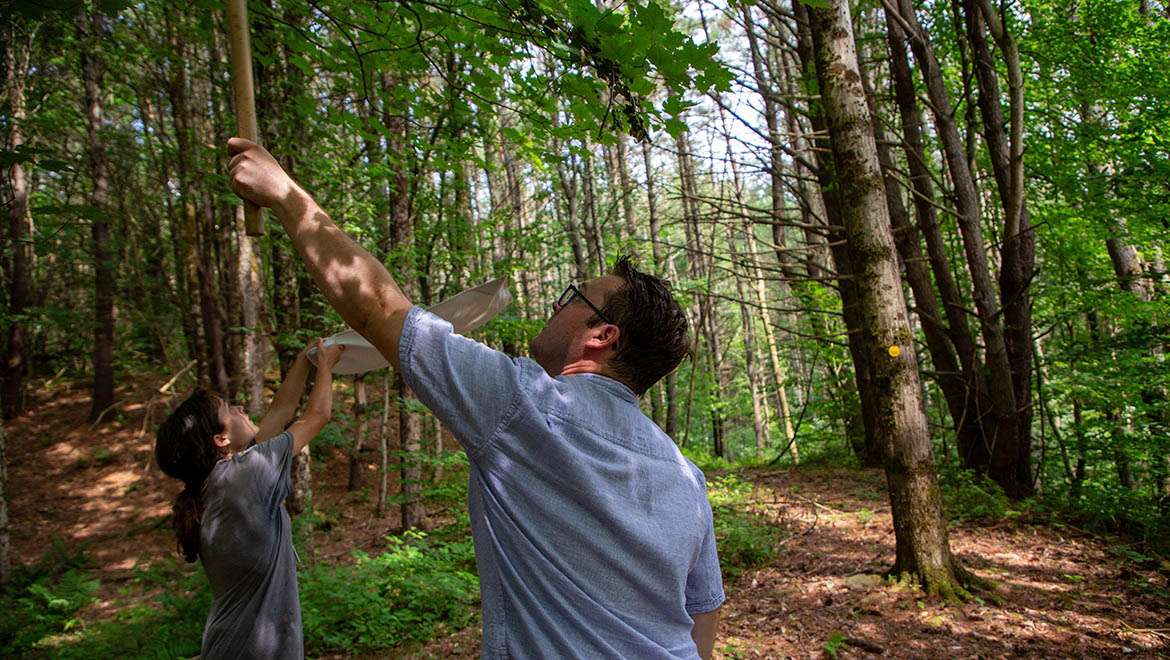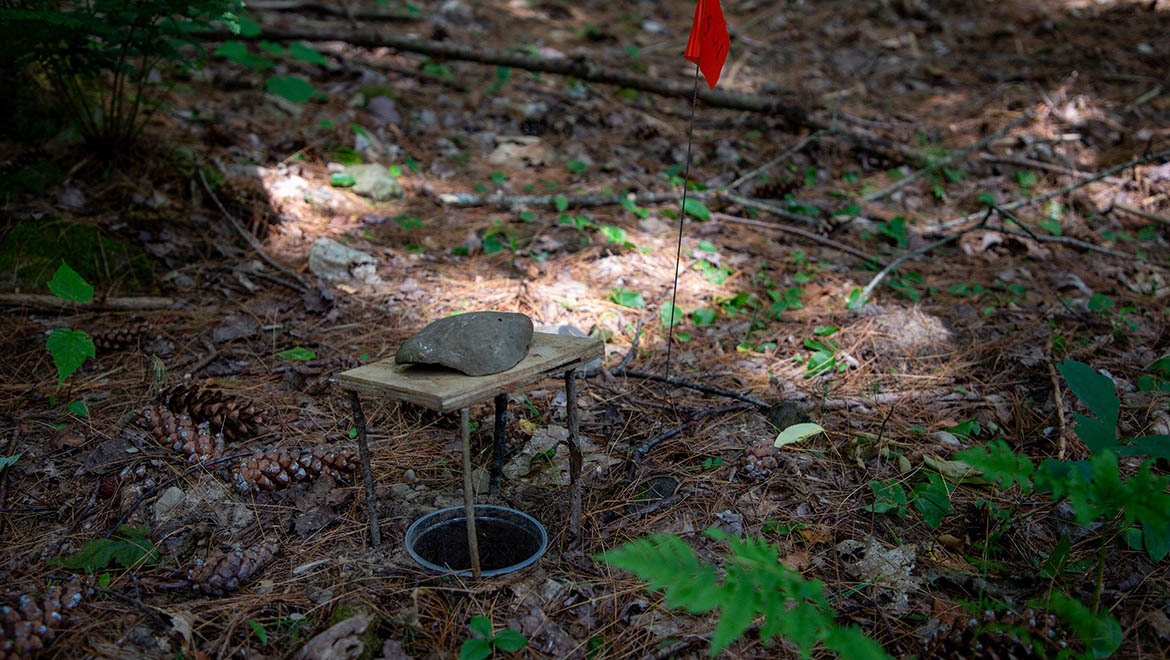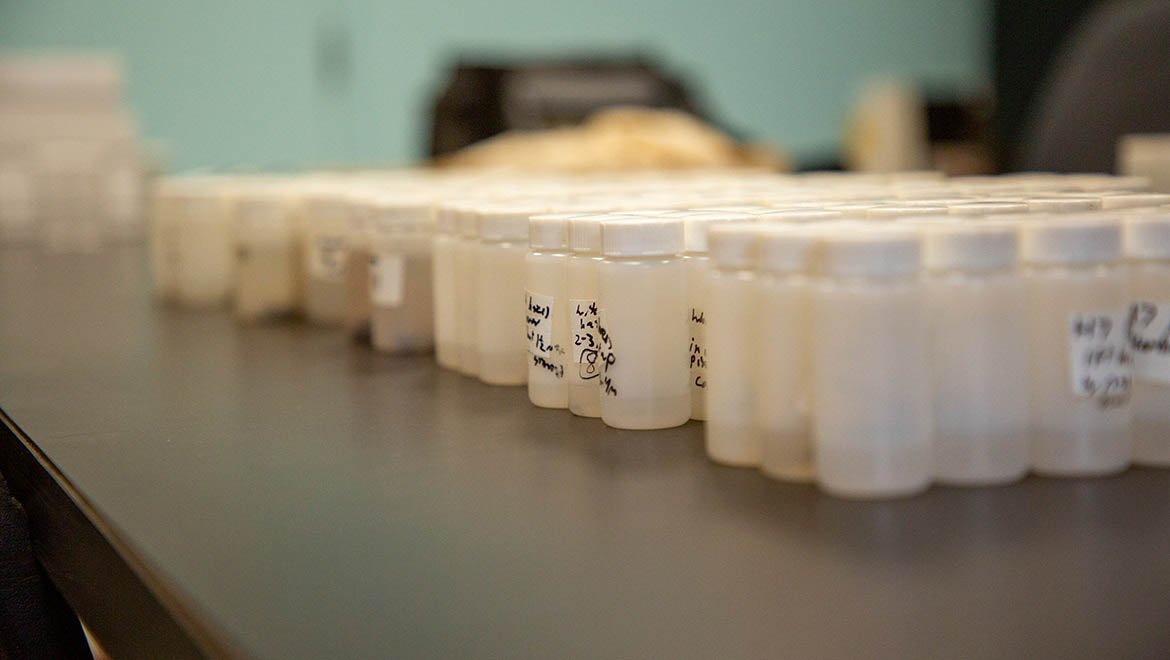Sweger, who joined the biology department in 2023, developed his spider senses as an undergraduate at Susquehanna University. “I was studying animal behavior, and the professor I was working with was doing his research on wolf spiders,” he said. “I became fond of spiders – they’re a very good model system for studying the evolution of behavior.”
Since June 1, Haas has checked the traps twice daily, two times a week, to see what she has collected.
Sweger explained that there are two types of traps, including ground-based “pitfall” traps. To collect tree-dwelling spiders, Haas lays out a “beat sheet” and uses a rod to shake the leaves and collect any that fall.
In the lab, she separates spiders from other insects and debris, then preserves them in alcohol.
“So far, we’ve found several species,” said Sweger. “We’ve got sheet weavers, orb weavers, crab spiders and wolf spiders.
Live specimens will also be taken to the biology lab in Johnstone for continued study throughout the year.
With more than 430 samples cataloged in three weeks, Sweger anticipates having nearly 1,000 samples by the end of July. “We’ll have boxes and boxes of spiders,” he said.







